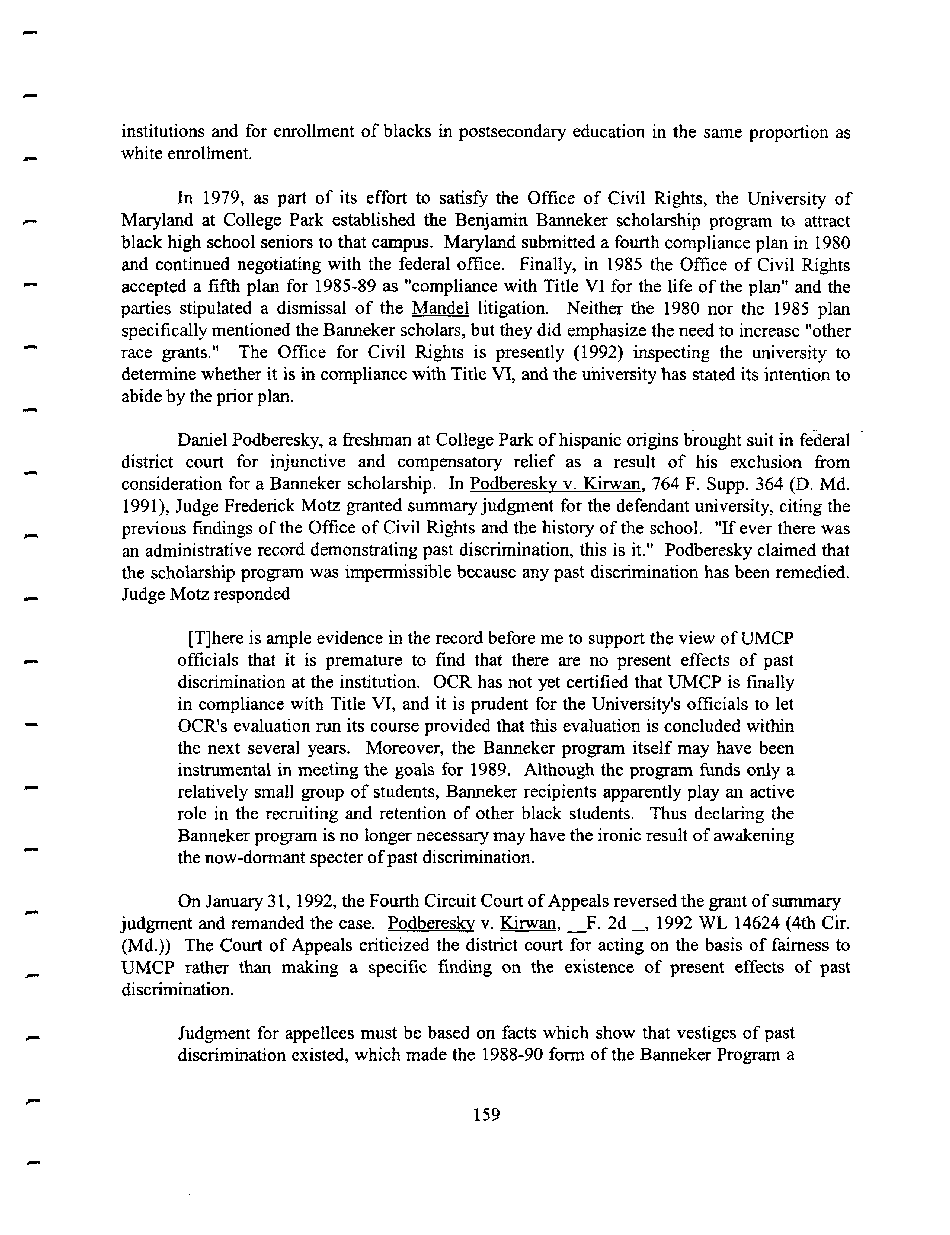|
institutions and for enrollment of blacks in postsecondary education in the same proportion as
white enrollment.
In 1979, as part of its effort to satisfy the Office of Civil Rights, the University of
Maryland at College Park established the Benjamin Banneker scholarship program to attract
black high school seniors to that campus. Maryland submitted a fourth compliance plan in 1980
and continued negotiating with the federal office. Finally, in 1985 the Office of Civil Rights
accepted a fifth plan for 1985-89 as "compliance with Title VI for the life of the plan" and the
parties stipulated a dismissal of the Mandel litigation. Neither the 1980 nor the 1985 plan
specifically mentioned the Banneker scholars, but they did emphasize the need to increase "other
race grants." The Office for Civil Rights is presently (1992) inspecting the university to
determine whether it is in compliance with Title VI, and the university has stated its intention to
abide by the prior plan.
Daniel Podberesky, a freshman at College Park of hispanic origins brought suit in federal
district court for injunctive and compensatory relief as a result of his exclusion from
consideration for a Banneker scholarship. In Podbereskv v. Kirwan. 764 F. Supp. 364 (D. Md.
1991), Judge Frederick Motz granted summary judgment for the defendant university, citing the
previous findings of the Office of Civil Rights and the history of the school. "If ever there was
an administrative record demonstrating past discrimination, this is it." Podberesky claimed that
the scholarship program was impermissible because any past discrimination has been remedied.
Judge Motz responded
[TJhere is ample evidence in the record before me to support the view of UMCP
officials that it is premature to find that there are no present effects of past
discrimination at the institution. OCR has not yet certified that UMCP is finally
in compliance with Title VI, and it is prudent for the University's officials to let
OCR's evaluation run its course provided that this evaluation is concluded within
the next several years. Moreover, the Banneker program itself may have been
instrumental in meeting the goals for 1989. Although the program funds only a
relatively small group of students, Banneker recipients apparently play an active
role in the recruiting and retention of other black students. Thus declaring the
Banneker program is no longer necessary may have the ironic result of awakening
the now-dormant specter of past discrimination.
On January 31, 1992, the Fourth Circuit Court of Appeals reversed the grant of summary
judgment and remanded the case. Podberesky v. Kirwan. _F. 2d _, 1992 WL 14624 (4th Cir.
(Md.)) The Court of Appeals criticized the district court for acting on the basis of fairness to
UMCP rather than making a specific finding on the existence of present effects of past
discrimination.
Judgment for appellees must be based on facts which show that vestiges of past
discrimination existed, which made the 1988-90 form of the Banneker Program a
159
�
|

